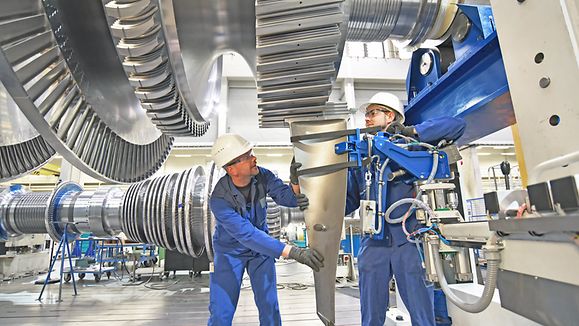Germany is the biggest and fastest-growing rooftop solar PV market in Europe
Your company is already operating in Germany and you would now like to export worldwide?
Key Facts
Facts & Figures
- European market leader Germany occupies one quarter of the EU market and leads the list of EU countries with the largest cumulative PV capacity of more than 100 GWp.
- Renewables lead electricity mix 62.7 percent renewable energy share of all electricity production in Germany in 2024, with a share of 13 percent solar power (59.7 TWh).
- Europe's largest residential customer market.The majority of new systems installed in 2024 were smaller than 30 kWp in size – making Germany by far the largest residential customer market in Europe.
- Own-consumption segments driving the market Germany is the fastest-growing market for rooftop solar PV in Europe. The potential rooftop surface area in Germany alone allows for an installed capacity of around 200 GWp. The own-consumption segments are the driving force of the future PV market in Germany.
Opportunities
New business models are being developed to build the base for the economic operation of PV systems beyond the feed-in tariff scheme. The large pool of installed PV systems is a pillar for the development of the energy storage systems market.
Germany was the leading market for behind-the-meter battery storage systems in. Around 580,000 stationary batteries were installed in 2024. This includes home, commercial, and large-scale storage systems. According to projections by the German Federal Network Agency, more than 1.8 million storage units with a total capacity of around 19 GWh were installed by the end of the year.
The very high attachment rate between batteries and residential solar - estimated in the range of 80 percent - shows that BESS will become almost part of a standard solar system in Germany. This will ensure stable market expansion Retrofit storage installations will also be a major driver for improving energy self-sufficiency in private households and commercial operations.
The inverter market continues to profit from the large base of existing PV installations as well as new inverter systems (such as hybrid and micro inverters for new PV systems). Innovative data management systems, EV-charging, heat pumps and new tools for optimizing PV systems efficiency and operations are other promising fields within the German PV market.
Business Environment
Market Access
Germany actively welcomes international enterprises to participate in PV developments to shape the global market of the future.
Germany’s role as the pioneering market in the grid-parity environment allows companies to test, define and introduce new industry standards. Innovative PV sales strategies, system configurations and integration processes - including storage and demand management - are intrinsic components of the specialist expertise being developed in Germany.
International companies wishing to sell photovoltaic products in the European Union must fulfill established quality and safety requirements. In Germany, solar photovoltaic modules are certified according to European Norm (EN) standards. Manufacturers must comply with the ''safety class II'' norms that certify the electrical safety of photovoltaic modules. The certifications for design qualification and type approval (EN 61215 and EN 61464) have become an industry essential, although they are not required by law.
Quality marks remain optional for PV-storage systems (excluding the CE certificate). However, battery customers value products that comply with specific safety guidelines such as the “Safety Guideline for Li-Ion Home Storage Systems" developed by the German Energy Storage Association and its partners.


